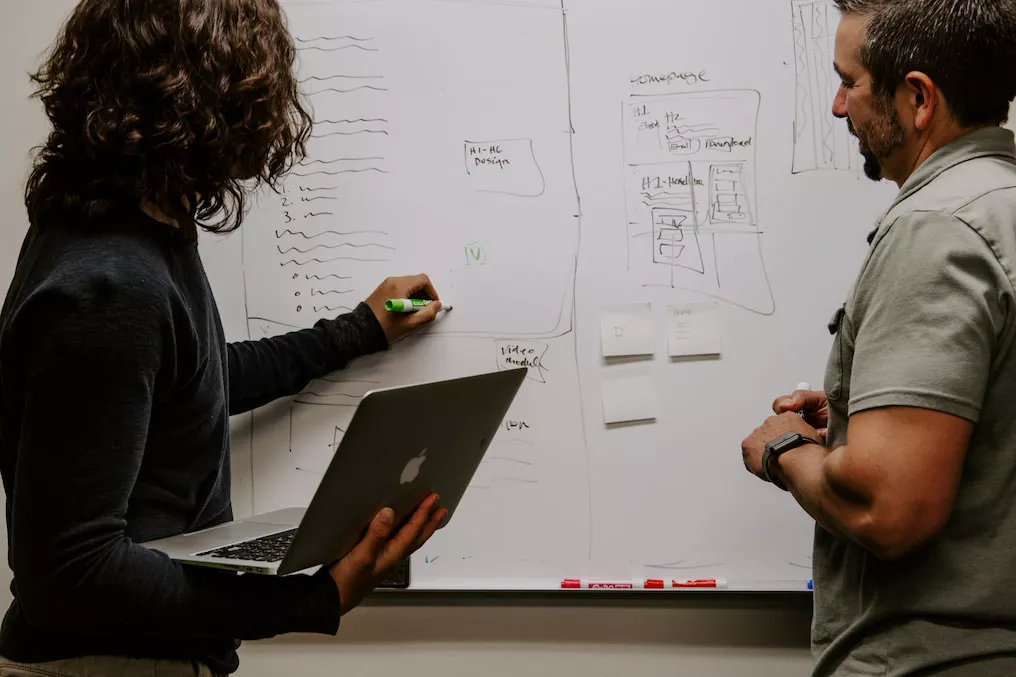In the realm of event planning, content marketing, and SEO are not mutually exclusive; they are interdependent. While content marketing focuses on creating valuable, engaging content, SEO ensures that this content reaches and resonates with the right audience. The synergy between the two is the secret sauce for a successful event marketing strategy.
What is SEO?
SEO, or Search Engine Optimization, is the practice of optimizing online content to improve its visibility and ranking on search engine results pages (SERPs). The goal is to make your content more accessible to users searching for relevant information.
Why is SEO Important in Content Marketing?
- Elevated Event Visibility: For event organizers, effective SEO isn’t just about generic visibility; it’s about ensuring that your event content appears prominently in search results related to your event’s specifics. This targeted visibility enhances the chances of attracting attendees genuinely interested in what your event offers.
Example: If you’re organizing a technology conference, optimizing for keywords like “latest tech trends,” “innovative tech events,” or “expert tech speakers” can significantly increase the visibility of your event among tech enthusiasts. - Establishing Credibility and Trust: In the event industry, credibility is paramount. Content that secures high rankings in search results is often perceived as more credible and trustworthy by potential attendees.
Example: If your event content consistently appears at the top of search results for industry-related queries, attendees are more likely to trust the value and relevance of your event. - Targeting Specific Audiences: SEO allows event organizers to precisely target keywords and phrases relevant to their events, ensuring that the people discovering their content through search engines are genuinely interested in the event offerings.
Example: For a business leadership summit, optimizing for keywords like “executive leadership events” or “industry thought leadership” ensures that the event reaches professionals actively seeking such opportunities.

Different Types of SEO
On-Page SEO
For event websites, on-page SEO involves optimizing individual pages to align with the event’s goals and audience expectations. Incorporate event-specific keywords strategically into meta titles, meta descriptions, headings, and throughout the content. A clear and concise structure aids both users and search engine crawlers in navigating the event details seamlessly.
Example: If you’re organizing a music festival, on-page SEO would involve incorporating keywords like “live music experience,” “headlining bands,” and “ticket information” to enhance the event’s discoverability.
Off-Page SEO
Off-page SEO for event management extends beyond the website. Build credibility through high-quality backlinks from reputable sources, engage in social media outreach, and collaborate with influencers or partners to amplify the event’s reach and impact.
Example: Collaborating with influential industry figures to write guest blog posts about your event or sharing event teasers on social media can contribute to off-page SEO success.
Technical SEO
Technical SEO focuses on optimizing the technical aspects of your event website to improve its performance in search rankings. This includes improving site speed, ensuring mobile-friendliness, and fixing any crawl errors. A technically sound website not only enhances user experience but also signals to search engines that your content is worth promoting.
Example: If your event website loads quickly, provides easy navigation on mobile devices, and is free of technical glitches, attendees are more likely to have a positive experience, contributing to improved search rankings.
Local SEO
For events with physical locations, local SEO is indispensable. Optimize for local search terms, ensure accurate business listings, and encourage attendees to leave local reviews. This not only enhances the event’s visibility within the local community but also attracts attendees in specific geographical areas.
Example: A local food festival could optimize for keywords like “culinary events in [city]” and encourage local businesses to promote the event, contributing to a strong local SEO strategy.
Voice Search Optimization
With the rise of voice-activated devices, voice search optimization has become essential. This involves adapting your content to match conversational search queries and providing concise, relevant answers. Voice search optimization ensures that your event remains accessible to users utilizing voice-activated assistants like Siri or Alexa.
Example: Potential attendees might use voice search queries like “find upcoming business conferences near me” to discover relevant events, highlighting the importance of voice search optimization for event organizers.
Video SEO
Video SEO is vital for events, especially when utilizing platforms like YouTube. Optimize video content with descriptive titles, relevant tags, and comprehensive transcriptions to ensure the event is discoverable through this engaging medium.
Example: If you’re organizing a fashion show, optimizing video content with keywords like “couture runway highlights” and “exclusive designer interviews” enhances the event’s visibility among fashion enthusiasts.

Practical Implementation of SEO in Event Content Marketing Strategy
For event organizers, implementing SEO practices into the content marketing strategy involves more than generic principles. Tailor your approach with these event-specific insights:
Event-Centric Keyword Research
Keyword research is the cornerstone of effective SEO. Conduct keyword research specific to your event, identifying terms attendees are likely to use when searching for events similar to yours. Tools like Google Keyword Planner, SEMrush, or Ahrefs can uncover high-traffic and low-competition keywords relevant to your event’s theme, speakers, and industry trends. This process not only informs your content creation but also helps you align your messaging with the language your audience uses.
Tailored On-Page Optimization for Event Pages
On-page optimization is about strategically weaving those identified keywords into your content to signal to search engines that your event is a relevant result. Optimize meta titles and descriptions, ensuring they are not only keyword-rich but also compelling and tailored to entice clicks. The use of header tags creates a clear and logical structure, aiding both users and search engine crawlers in understanding the hierarchy of information on your pages. By combining engaging content with strategic keyword placement, you increase the likelihood of ranking higher in search results.
Example: For a technology summit, on-page optimization would involve crafting meta titles like “Explore the Future of Tech at [Event Name]” and meta descriptions highlighting key speakers and cutting-edge topics.
Crafting High-Quality Event Content
Creating content that resonates with your audience is fundamental to SEO success. Google’s algorithms prioritize content that answers user queries, provides valuable information, and aligns with user intent. Develop high-quality, informative content that not only showcases your event but also serves as a resource for your target audience. This content becomes the cornerstone for link-building efforts and sets the stage for your event’s credibility in the digital landscape.
Example: If you’re organizing a business expo, creating content such as “Top Trends to Watch in [Industry]” or “Exclusive Interviews with Industry Leaders” can attract professionals and contribute to link-building efforts.
Event-Specific Link-Building Strategies
Link building is a crucial off-page SEO component that involves acquiring backlinks from reputable websites. It’s not just about quantity but the quality of these links. Acquire backlinks from reputable websites within your event’s niche, engage in guest posting, collaborate with influencers, and establish relationships with industry experts. Quality backlinks signal to search engines that your content is trustworthy and authoritative, contributing to improved rankings.
Example: A startup conference could secure backlinks by collaborating with industry blogs for guest posts, featuring interviews with keynote speakers, and creating shareable content that attracts links from relevant sources.
Mobile Optimization for Seamless Event Experience
Optimizing your event website for mobile devices is no longer a choice but a necessity. With Google prioritizing mobile-friendly websites, this aspect of technical SEO is crucial. Ensure that your website is responsive, providing a seamless and enjoyable experience for users on various devices. Mobile optimization not only contributes to improved search rankings but also enhances the overall user experience, a factor increasingly important in search algorithms.
Example: For a music festival, a mobile-optimized website ensures that attendees can easily access the schedule, purchase tickets, and navigate event details on their smartphones, contributing to a positive user experience.
Local SEO Strategies for Event Promotion
For events with a physical location, local SEO strategies come into play. Optimize your content for local search terms and ensure accurate business listings on platforms like Google My Business and other local directories. Encourage attendees to leave local reviews and testimonials, not only bolstering your local SEO but also providing social proof that can influence potential attendees in the area.
Example: A local art fair could optimize for keywords like “cultural events in [city]” and collaborate with local businesses to cross-promote the event, fostering a strong local presence.
By integrating these event-specific SEO practices into your content marketing strategy, event organizers can enhance the visibility and credibility of their events and attract a targeted audience genuinely interested in the unique offerings of each event. This nuanced approach ensures that the synergy between content marketing and SEO becomes a powerful catalyst for successful event management and promotion.
Looking for more marketing tips and tricks to make your next event successful? Check out our marketing guides to learn more.

